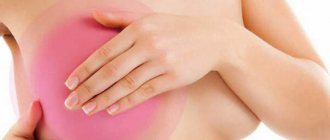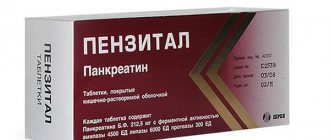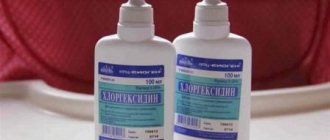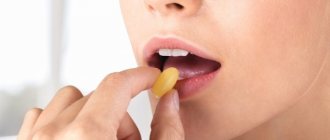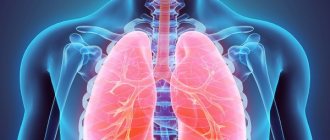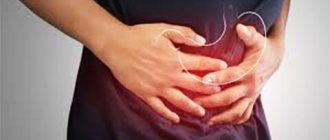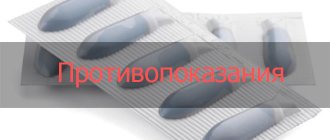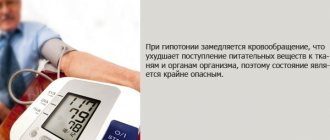Ketorol
Ketorol belongs to the NSAID group of drugs and has a pronounced analgesic effect. The main active ingredient is ketorolac promethamine. Ketorol is recommended for use for severe toothache.
The daily dose of 4 tablets of 10 mg should not be exceeded for adults. Ketorol is not combined with other NSAIDs or Paracetamol.
Contraindications for use are the following conditions: impaired functioning of the kidneys and liver, the period of pregnancy, the period of breastfeeding, children under 16 years of age.
After taking the drug, the following side effects are possible: drowsiness, increased blood pressure, swelling of the limbs and face, disorders of the digestive system.
Causes of pain
In order to effectively cure the pathology, the doctor needs to know what caused the development of this condition, because depending on the nature of the pain, the prerequisites may be different.
Acute pain
- Pulp hyperemia is the initial stage of the inflammatory process affecting the dental nerve. In this case, the patient suddenly experiences an attack of pain, which spontaneously subsides after some time. The disease cannot develop on a completely healthy tooth. Hyperemia is usually preceded by deep caries. Since partial inflammation of the pulp is a reversible process, if you consult a doctor in a timely manner, you can keep the tooth alive.
- Acute serous pulpitis is diffuse irreversible inflammation of the neurovascular bundle of the tooth. This form of pulpitis is characterized by acute paroxysmal pain, mainly disturbing at night. Discomfortable sensations arise unexpectedly, with painful attacks giving way to “light” intervals. At the initial stage, the pain-free period is quite long, but as the process worsens, the pain becomes unbearable.
- Acute purulent pulpitis is the next stage of inflammation of the pulp, beginning at the time of the addition of a purulent infection. The patient’s sensations in the causative tooth become pulsating, aggravated by heat. The patient indicates a feeling of fullness in the tooth; pain-free intervals are practically absent.
- Acute apical periodontitis is a disease that develops when infection from the root canal system penetrates into the periapical tissues surrounding the tooth root and causes inflammation there. The type of exudate can be serous or purulent. With serous periodontitis, a person experiences constant aching pain, which intensifies when pressing on the tooth. When the process enters the purulent stage, the sensations become pulsating and radiating. Often the patient indicates a feeling of an “overgrown” tooth, while attempts to close the jaws lead to unbearable pain.
- Acute periostitis is an inflammatory process affecting the periosteum. Occurs due to the lack of timely treatment of periodontitis. In addition to pain, swelling occurs in the area of the causative tooth, and often the cheek swells and the face becomes asymmetrical.
Intermittent pain
The pain is not always acute. When a person has a severe toothache, he tries to get to the doctor as soon as possible. Things are different with chronic periodic pain. They are quite weak, appearing occasionally, or after exposure to any irritant, for example, sweet or cold.
- Hyperesthesia of hard tissues - with increased sensitivity, pain periodically occurs, which subsides after the irritating factor is eliminated. Externally, the tooth looks completely healthy or has areas of increased abrasion in the neck area (wedge-shaped defects).
- Enamel cracks - congenital structural damage or resulting from injury, as well as sudden changes in the temperature of consumed foods, lead to the fact that sometimes a painful reaction may occur upon contact with cold air, hot or cold food, as well as sweet dishes.
- Medium caries - the destruction of hard tissue is accompanied by the fact that irritation is easily transmitted through the dentinal tubules to the pulp chamber. Discomfort increases when eating hot, cold or sweet foods. After eliminating the irritant, the pain disappears.
- Post-filling pain - appears immediately after the filling is placed or a few days later. This is how the tooth can react to the preparation and restoration manipulations. Overdrying of the cavity, excessive etching, shrinkage of the material, tearing off of the spacer layer - all this leads to the tooth aching. Normally, such sensations disappear within a week, but if the pain intensifies daily, then you need to contact the doctor who was involved in the therapy.
- Chronic apical periodontitis - the disease is almost painless. If there is a granuloma at the root apex, periodic discomfort may occur when you press on the tooth. With a decrease in immune defense and the development of a general cold-inflammatory disease, the tooth’s response to pressure may increase.
Nurofen
Nurofen is a drug that relieves pain, relieves inflammation and swelling. The tablets are approved for use in children over 12 years of age. The drug is fast-acting and effectively eliminates pain within 30 minutes after administration.
For pain, you can take 1-2 tablets once. You can repeat the dose after 6-8 hours, but not more than 3 times a day. Nurofen is able to relieve pain of moderate intensity. For severe pain, you can use a drug such as Nurofen Plus. Its composition is supplemented with codeine, which makes it possible to more effectively relieve toothache.
However, Nurofen has a wide list of contraindications, including:
- Impaired functioning of the liver and kidneys;
- Hemophilia, leukopenia;
- Disturbances in the functioning of the gastrointestinal tract;
- Children under 12 years of age (for tablet form);
- Breastfeeding period, etc.
What are the types of painkillers?
All painkillers can be divided into several types: analgesics, non-steroidal anti-inflammatory drugs (NSAIDs), local painkillers.
Analgesics. They suppress pain by preventing the passage of signals from nerve endings to the brain. In turn, they are divided into anesthetics - local painkillers, for example, novocaine or lidocaine, and narcotic substances that suppress pain through their effect on human brain cells. The latter are dangerous because they are highly addictive. Used only with a doctor's prescription, they are effective for relieving unbearable pain, such as in patients with oncology.
Non-steroidal anti-inflammatory drugs. The most common drugs for eliminating pain of different origins and intensity. They are able to relieve discomfort, cope with inflammation and have antipyretic properties. An important advantage of such substances is that they do not inhibit the function of the respiratory system, do not cause addiction and euphoria, as after taking narcotic substances. Representatives of this class are in almost everyone’s medicine cabinet - as a rule, they are produced in the form of tablets.
Important! Over-the-counter NSAIDs1 are the best sellers in the Russian Federation and around the world. Moreover, according to research, about 40% of patients consider them safe for health. But about 30% of patients use them for self-medication in violation of the instructions and dosage regimen, which subsequently leads to problems, undesirable consequences and even death. Therefore, be extremely careful when taking any product.
Local painkillers. They are also called drugs with a freezing effect. As a rule, these are either aerosols or gels.
Freezing agents eliminate dentalgia for a short time; they also have another significant drawback - they can cause numbness, loss of sensitivity of soft tissues, taste buds and tongue (a feeling of “cotton tongue” occurs).
Tempalgin
Tempalgin is an analgesic-antipyretic drug. Helps relieve pain, reduces elevated body temperature, and has a mild anti-inflammatory and calming effect. Tempalgin contains two main active ingredients: metamizole sodium, which is a non-opioid analgesic, and tempidone, which is a tranquilizer.
Tepalgin is taken for mild or moderate toothache; the daily dose should not exceed 6 tablets.
Contraindications for use are:
- Kidney and heart failure;
- Low blood pressure (below 100 mmHg);
- Hematopoietic system disorders:
- Childbearing and breastfeeding;
- Age under 14 years.
Can antibiotics be used?
For severe pain that is associated specifically with dental problems or infections of the oral cavity, with the presence of ulcers or abscesses, doctors often prescribe antibiotics to patients: Cifran, Clindomycin, Amoxicillin or Tsiprolet. But, all of the listed drugs have serious contraindications and side effects, and use them independently, i.e. without a clearly defined diagnosis, without consultation and supervision by a doctor - strictly prohibited! True, today such serious medications are unlikely to be sold to you in a pharmacy without a prescription from a specialist.
Ketanov
Ketanov belongs to the NSAID group of drugs and is capable of relieving severe toothache. In addition, Ketanov has antipyretic and anti-inflammatory effects. It is often recommended for use after dental surgery.
You should not take more than 1 tablet per day. The minimum time that must pass before the next dose is 6 hours.
Ketanov has the ability to provoke heart rhythm disturbances, increased blood pressure, dizziness, and nausea.
You should not take the drug if you have a stomach ulcer, bleeding disorders, asthma, liver or kidney diseases. Ketanov is prohibited for use by pregnant and lactating women, as well as in children under 16 years of age.
Indications for use
If you have toothache, you should not put the problem on the back burner: immediately make an appointment with a dentist, who will not only conduct a diagnosis, but also help get rid of inflammation, and, consequently, pain.
However, before you see a specialist, you will need medicinal support: severe pain can not only harm the condition of your teeth, but also destroy nerve cells.
Here are the indications for the use of anti-inflammatory tablets for toothache:
- severe pain;
- inflammation of the oral cavity caused by both pathogenic bacteria and mechanical irritants (braces, plate, etc.);
- inflammation due to periodontal disease;
- inflammation of the gums;
- pain caused by loosening and falling out of teeth
Remember that before using the selected product, you must read the instructions included in the package with the drug.
No matter how severe the pain during inflammation, do not exceed the indicated dosage: this can lead to intoxication or poisoning, as well as increased drowsiness. In some cases, tablets affect the functioning of the heart, liver, and kidneys.
Tooth drops for toothache
Dental drops are drugs that have analgesic, local irritant, antiseptic and anti-inflammatory effects. They are used for toothache until medical assistance is provided.
Do not use dental drops in children under 12 years of age, in the presence of hypersensitivity to the components of the drug, during pregnancy and lactation.
Use the drug topically by applying up to 3 drops of the product to a cotton swab and applying the cotton wool to the sore tooth for up to 10 minutes.
Prevention of dental diseases
From a very young age, everyone knows what needs to be done to prevent teeth from hurting:
- Regular oral hygiene. You need to brush your teeth thoroughly, morning and evening, using a good toothpaste and brush. During the day, after each meal, you should rinse your mouth thoroughly, ideally using dental floss.
- Visit the dentist twice a year for preventative care.
- Eliminate any foci of infection in the oral cavity in a timely manner and carry out sanitation in a timely manner.
- Do not neglect modern methods of protecting teeth - fluoridation, remineralization, fissure sealing.
In addition, dental health largely depends on what we eat - the diet should include as many fresh vegetables and fruits, fish, and lean meat as possible; Eliminate sugar and sweets as much as possible. Teeth should be protected from mechanical damage, and do not overuse whitening toothpastes.
Author: Elena Grunina Dentist-therapist, endodontist. Work experience more than 9 years. The information is for reference only. Before treatment, consultation with a doctor is necessary.
Pills during pregnancy
Taking any medications during pregnancy must be done with extreme caution, since most medications are contraindicated at this time. Many of them are able to cross the placental barrier and influence the development of the fetus. Therefore, to relieve toothache, pregnant women are recommended to use local remedies - mouth rinses, compresses. You can take Paracetamol, but not more than 1 tablet.
In case of severe pain and after consultation with a specialist, you can take:
- Spasmalgon.
- Ibuprofen, but not in the third trimester.
- Analgin.
- No-shpa.
- Baralgin.
Do not exceed the daily dose of 2 tablets for any of these remedies. The 2nd trimester of pregnancy is safer in terms of taking medications, since the risk of fetal pathologies at this time is minimal.
Consequences of self-medication
Not a single one, even the most effective painkillers, will help to avoid complications if you do not engage in treatment aimed at eliminating the cause that led to the occurrence of this condition.
- Inflammation of the dental nerve will not go away on its own, caries will not disappear, but just the opposite - the course of these pathologies will only intensify. Therefore, you should not take medications for toothache or try to eliminate it at home using various rinses and hope that a visit to the dental office will not be necessary, this will only lead to the development of more serious diseases.
- Unsealed caries in a timely manner turns into inflammation of the dental nerve; if pulpitis is not treated, the process spreads to the periapical tissues, which, in turn, causes damage to the periosteum.
- The serous process is often complicated by the addition of a purulent infection, when taking antibiotics is no longer possible.
The most dangerous consequences of lack of treatment are:
- osteomyelitis - an inflammatory process in the jaw bones, leading to their destruction;
- abscess and phlegmon - purulent melting of soft tissues;
- mediastinitis is a condition when an infection penetrates the mediastinum and causes inflammation there;
- sepsis is blood poisoning.
Author:
Selezneva Valentina Anatolyevna physician-therapist
Painkillers for children
Tablet forms of drugs in children, as a rule, are not prescribed. For toothache, suspensions, gels and solutions are recommended. Moreover, all these drugs can be based on either ibuprofen or paracetamol. The maximum daily dose of paracetamol should not be exceeded: 2 g.
Most often, children are recommended to relieve toothache:
- Nurofen for children over 6 years old.
- Panadol for children over 3 years old.
- Ketanov for teenagers over 15 years old.
How to safely and effectively help your child
The remedies listed above will help quickly relieve pain in an adult, but dental problems often bother children. Teething also causes anxiety in babies.
For children, the pharmaceutical industry has prepared quite a few drugs that will help fight unpleasant symptoms:
- liquid suspensions: Nurofen, Panadol, Ibuprofen,
- gels and ointments: “Bebident”, “Kamistad gel”, “Kalgel”, “Traumel S”, “Dentinox”,
- rectal suppositories: Panadol, Viburkol.
Mode of application
Depending on the chosen product, the method of application may vary. The most common is oral:
- It is recommended to take tablets strictly according to the indicated regimen: from 1 to 6 pieces/day. Try not to use the product before visiting the dentist, as this may make diagnosis difficult.
- Products such as Aspirin can be dissolved in water, after which you should drink the resulting solution. Remember that the tablets must be diluted only with boiled or mineral water without gas: otherwise, enzymes from juices and sugar-containing drinks may reduce the effect or even neutralize the medicine.
- In rare cases, the tablet must be placed in the area of inflammation, after which it must be dissolved. This remedy can be called truly effective: the components of the drug directly affect the area of inflammation.
Remember that you cannot prescribe a course of treatment yourself. It is advisable to consult a dentist before going to the hospital or ask a pharmacist if you have any questions.
Toothache is often unbearable, so people try to find the best toothache pills so that they no longer experience the painful symptoms. See the article for a list of funds.
What do red dots on the tongue mean and how to get rid of them? You will find the answer here.
Did you know that teeth erupt in a strictly defined sequence? Here https://zubki2.ru/detskaya-stomatologiya/zuby/prorezyvanie/ocherednost.html we will talk about the norms and violations during teething in children.
Unconventional methods at home
In the absence of painkillers, you can do acupressure.
There are three points that you can use to relieve toothache at home yourself:
- In the absence of painkillers, you can do acupressure
In the area where the thumb and index fingers of the hand connect , it is necessary to massage the hand opposite to the affected tooth. The duration of rotational movements is 4 minutes. If you use an ice cube for massage, the effect will not be long in coming.
- The nail of the index finger is massaged on the hand from the side of the inflammatory focus. Press on the surface for 5 minutes.
- The upper edge and earlobe from the side of the site of inflammation and pain is massaged from top to bottom. Pressure is applied with the thumb and index finger until slight redness appears.
Sequencing
Before taking any medications for tooth pain, you need to brush them. Perhaps a tiny piece of food that got into the carious hole caused the discomfort. In this case, relief should occur immediately after removing the irritant.
You should brush your teeth very carefully, as strong pressure can increase the pain. Therefore, it is better to abandon electric toothbrushes. You can only rinse with water. If dentalgia still does not go away, then you can take a suitable drug.

